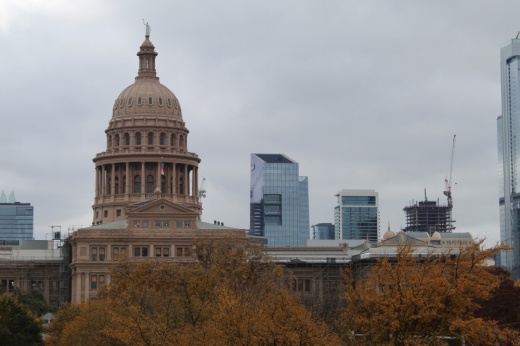The legislation, passed in May, lets public schools hire chaplains to serve as school counselors without the required state certification.
The overview
State Rep. James Talarico, D-Austin, commended school districts for “protecting our students, and ... protecting our religious liberties at the local level across the state” during a Feb. 29 news conference.
Talarico is a current seminary student and an outspoken opponent of the new law, which he labeled “Christian nationalism.”
The law requires school boards to take a record vote by March 1 on whether to employ religious chaplains as counselors and allow them to volunteer on campus. Many districts voted to maintain their existing volunteer and employment policies but declined to hire chaplains for mental health roles.
Supporters of the legislation said it would help expand mental health resources for students who need them.
“For the same reasons I believe chaplains work so well and do so much for public safety in helping our first responders cope with the trauma of their occupation, those are the same reasons I believe chaplains would work so well in our public schools,” bill author Sen. Mayes Middleton, R-Galveston, told the Texas Senate last April.
Districts could pay chaplains using school safety funding from the state, the bill states.
Zooming in
As previously reported by Community Impact, school districts around Houston, Austin, Dallas and San Antonio opted not to hire unlicensed chaplains as counselors, including:
- Austin ISD
- Bastrop ISD
- Cy-Fair ISD
- Fort Bend ISD
- Humble ISD
- Katy ISD
- Lewisville ISD
- McKinney ISD
- North East ISD
- Round Rock ISD
“We are pleased to report that Texas public schools are still safe for every faith,” said Joshua Houston, the advocacy director for Texas Impact, an interfaith policy organization. “We know that the largest 25 school districts in Texas have all rejected creating a new chaplain program. Those 25 districts account for 1 in 3 of all school children in Texas.”
Emily Bourgeois, the Texas director of the Religious Action Center of Reform Judaism, said she did not think Jewish students and other religious minorities would see themselves reflected in chaplains.
“We believe that a core tenet of democracy, and one that has allowed the Jewish community to flourish in the United States, is the separation of church and state,” Bourgeois said. “We know that the chaplains being brought into schools in this legislation are not reflective of our community, and we know that the backers of this bill rejected protections against attempts to convert our children to Christianity.”
The bill does not define “chaplain” or identify specific religious groups.





